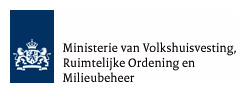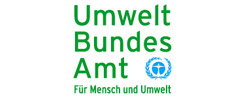People stand up for fair elections in Ukraine
The ‘Orange Revolution’ strengthens democracy and free press
21.12.2004 |Annemarie Mohr

Interview
WECF and its partners have been working with local groups in the Ukraine since 1996. Annemarie Mohr interviewed Sascha Gabizon what to think of the recent developments in Ukraine.The Orange Revolution in Ukraine
AM: Is this an historic event, the uprising of the people?Gabizon: This is probably one of the most important events in the history of Ukraine. It has had two main results, the creation of a strong civil movement, which is the basis for any real democracy, and, the strengthening of a free press. This is why the Ukrainians call the events of the last weeks the ‘orange revolution’.

Photos: Yuri Onisimov, Kiev, November 2004
AM: Did Ukraine not have a free press before?
Gabizon: Partly yes, especially in the Western parts of Ukraine and in Kiev there were opposition papers. And there was 1 opposition television. But the government closed the bank account of this opposition television 3 weeks before the elections. The journalists of this opposition television then went into hunger-strike, this led to the first mobilization of civil society.
AM: How did civilians mobilize against the closing of the opposition TV?
Gabizon: When the bank account of opposition TV was closed and it’s journalists went into hunger strike, many civilians brought plates of food to their government representatives, a symbolic way of asking to stop the hunger strike, by re-opening the opposition television.
AM: And now, there is opposition television again?
Gabizon: Yes. The bank account of television re-opened and what is most interesting, 7 leading journalists of the state television have left their jobs and joined the opposition television. It all started with a woman who does the sign-language for blind people, when the state television announced that Janokowitsch was the winner of the elections she disobeyed, and instead of saying, in sign language, that he won, she said that she would step down from her job at the television as she did not want to tell lies.

Photos: Yuri Onisimov, Kiev, November 2004
AM: And the mass demonstrations, was that new?
Gabizon: Yes, these were spontaneous demonstrations. Not like the coal miners which were paid by government candidate forces to got to Kiev. People from all over the country, even from poor rural areas, left their jobs and travelled to Kiev to join the strikers of Kiev factories already on the streets in Kiev. The mayor of Kiev has provided 2 floors of the townhall, and several other public buildings, for these thousands of people from outside Kiev who arrived. Some of the demonstrators slept in the street in tents.
AM: But how did the strikers survive so many days in the cold outside?
Gabizon: There was a surge of solidarity and good spirit. Everybody was helping each other. The families in Kiev were cooking day and night and bringing food to the demonstrators on Krischatik avenue. Hundreds of medical doctors were helping the demonstrators who spend all day in the cold snow.
AM: And they managed to keep up a good and peaceful atmosphere?
Gabizon: The people were singing and chanting. Lots of new songs were written and sung. Among others by famous artists. And the opposition made sure that each day there was a new goal to reach. One day they would ask the strikers to go the presidents palace, the next day to the parliament etc etc. When the court of justice had declared the elections invalid, they asked them to go to the court of justice and all these thousands of people went there to thank the judges and brought heaps of flowers. It was really very impressive.
AM: What should we expect of the new elections on Dec 26th 2004?
Gabizon: I am afraid that we might still witness violence. Already in the previous round their was disruption; election stations were phoned and told bombs had been placed in their voting stations, to scare people away. We will probably see similar disruption in the regions which are likely to vote for Yuschenko.

Photos: Yuri Onisimov, Kiev, November 2004
AM: Will there be any influence on the work of women’s and environmental organisations in Ukraine?
Gabizon: As WECF we do not speak out for one or another party and work mainly with local governments, whatever their political background. But we do think that when the people are so courageous as these last weeks in Ukraine that when they stand up for their rights to fair and just elections, then they deserve our respect and support. I am quite hopeful that the orange revolution will have a lasting positive effect on the further development of democracy and peace in the entire region. And in that sense it will be easier for people to dare and stand up for the rights of women, children and the environment.
18. December 2004
This interview was carried out by Annemarie Mohr.


































